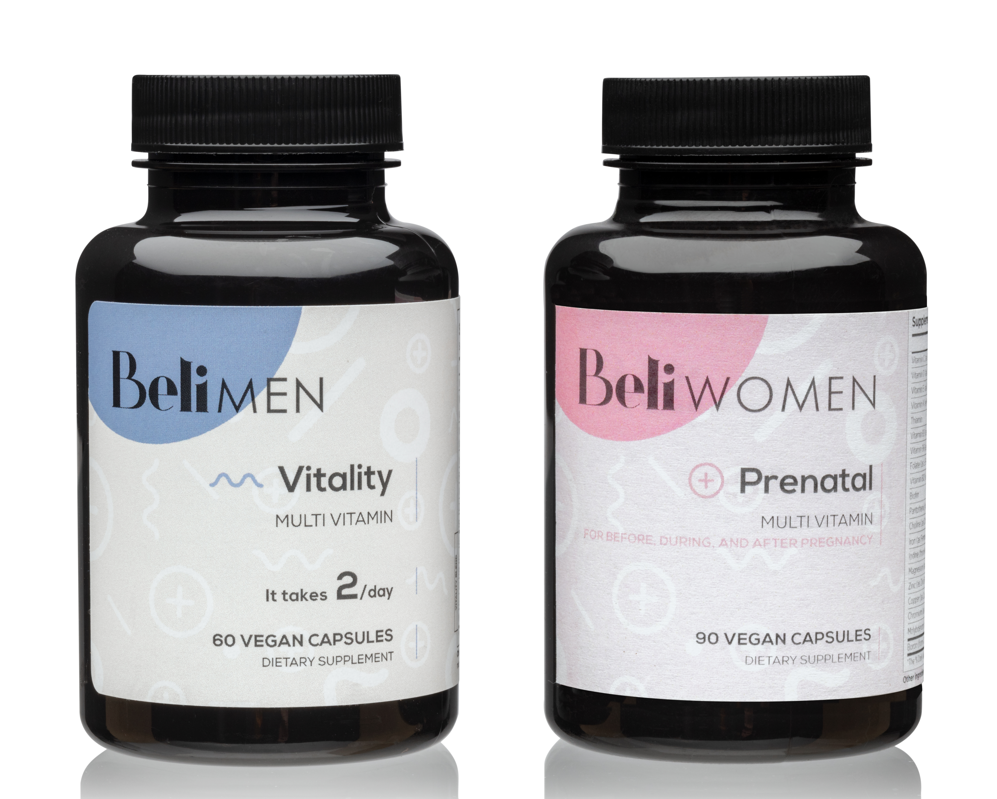At-home Women's Fertility Test - Fertility Resource Hub
How to read your results
Here is an example of what your results will appear in your portal after the tests have been completed.
What is an AMH Test?
An AMH (Anti-Mullerian Hormone) test measures the level of a hormone produced by the small follicles in your ovaries. This test helps estimate your ovarian reserve, or how many eggs you have at the time of testing. While AMH levels provide insight into the number of eggs, they do not indicate the quality of those eggs, which is also important for fertility.
Why is it Important?
- Monitoring fertility: AMH levels decline as women age, so tracking your levels can give insight into how your fertility might change over time.
- Predicting response to fertility treatments: If you are considering treatments like egg freezing or IVF, your AMH levels can help predict how many eggs you might retrieve.
- Other health insights: AMH testing is also helpful for understanding ovarian health, particularly for women who have undergone surgery, chemotherapy, or have concerns about ovarian tumors.
How to Read Your AMH Results?
AMH levels are interpreted based on your age, as they naturally decline with time.
For Women Under Age 35:
- High (> 4.0 ng/mL): This may indicate a higher egg count, sometimes linked to conditions like PCOS (Polycystic Ovary Syndrome).
- Normal (1.5 - 4.0 ng/mL): Considered a healthy range, showing a good number of eggs.
- Low-Normal (1.0 - 1.5 ng/mL): Slightly lower than average, but still within the normal range.
- Low (0.5 - 1.0 ng/mL): Indicates fewer eggs, which could affect fertility.
- Very Low (< 0.5 ng/mL): Indicates a very low number of eggs, typically seen as women approach menopause.
For Women Over Age 35:
- Age 36-40: Normal AMH levels range from 0.5 to 1.5 ng/mL.
- Age 41-45: AMH levels are typically lower, below 1.0 ng/mL, with very low levels being below 0.5 ng/mL.
Advanced Maternal Age (AMA) reference range established using Cleveland Clinic guidelines (source).
What Your AMH Level Means?
- High AMH: Indicates a higher egg count, but not necessarily better egg quality. In some cases, high levels could indicate PCOS.
- Normal AMH: Suggests a healthy ovarian reserve, with a good chance of success in fertility treatments, if needed.
- Low or Very Low AMH: Indicates fewer eggs remaining, which could make natural conception more difficult but does not rule out pregnancy. Fertility treatments may still be an option.
When to Order an AMH Test?
Consider ordering an AMH test if you are:
- Curious about your fertility or planning to start a family soon or in the future.
- Considering fertility treatments like IVF or egg freezing.
- Concerned about the impact of surgeries, chemotherapy, or other health issues on your fertility.
In summary, your AMH level is a helpful tool to gauge your ovarian reserve, but remember it’s only one part of the fertility picture. Consulting with a healthcare provider to interpret your results is always recommended.
Anti-Müllerian Hormone (AMH) in Women
Anti-Müllerian Hormone (AMH) is a key hormone in evaluating a woman's reproductive health, providing insights into ovarian reserve and fertility potential. In this guide, we’ll explore what AMH does, how it affects fertility, and what your AMH test results might mean.
What is AMH?
AMH is a hormone produced by the small follicles in a woman's ovaries. These follicles contain eggs, and AMH levels are a direct reflection of the number of viable eggs (ovarian reserve) a woman has at a given point in time. As a woman ages, her ovarian reserve naturally declines, and so do her AMH levels.
AMH Function in Women
- Ovarian Reserve: AMH is used as a marker of ovarian reserve, indicating the remaining quantity of eggs. It helps healthcare providers assess how many fertile years a woman may have left and is a critical factor in fertility planning.
- Fertility Treatment: AMH levels can guide fertility treatments, such as in vitro fertilization (IVF), by predicting how well a woman might respond to ovarian stimulation.
What are Normal AMH Levels in Women?
AMH levels vary by age and individual health. For women of reproductive age, AMH levels typically range from 1.0-4.0 ng/mL. However, levels naturally decline with age, and lower levels may be seen in women approaching menopause.
What Do Abnormal AMH Levels Mean?
- High AMH Levels: Elevated AMH levels may suggest polycystic ovary syndrome (PCOS), a condition characterized by numerous small follicles in the ovaries that fail to mature and release eggs. Symptoms of high AMH and potential PCOS may include:
- Irregular menstrual cycles
- Difficulty conceiving
- Excessive body or facial hair
- Acne
Source: American Society for Reproductive Medicine (ASRM), Mayo Clinic
- Low AMH Levels: Low AMH levels indicate a diminished ovarian reserve, which could suggest fewer remaining eggs. This may be a natural part of aging or due to other factors like premature ovarian insufficiency. Symptoms or concerns related to low AMH levels include:
- Difficulty conceiving
- Shorter or irregular menstrual cycles
- Early signs of menopause
- Lower response to fertility treatments
Source: Endocrine Society, ASRM
How Do AMH Levels Impact Fertility?
AMH is one of the best indicators of a woman’s fertility potential. Women with low AMH levels may face challenges in conceiving naturally, as it often reflects a reduced number of eggs. On the other hand, high AMH levels, particularly in women with PCOS, may also present fertility challenges due to irregular ovulation. Understanding AMH levels can help guide fertility treatments like IVF or other interventions to optimize reproductive outcomes.
What to do if you have abnormal results?
If your AMH levels are abnormal, it’s essential to consult a healthcare provider or fertility specialist. They can assess your ovarian reserve, discuss fertility options, and recommend lifestyle changes or treatments based on your reproductive goals. For more detailed information, the American Society for Reproductive Medicine and other fertility resources offer valuable insights.


